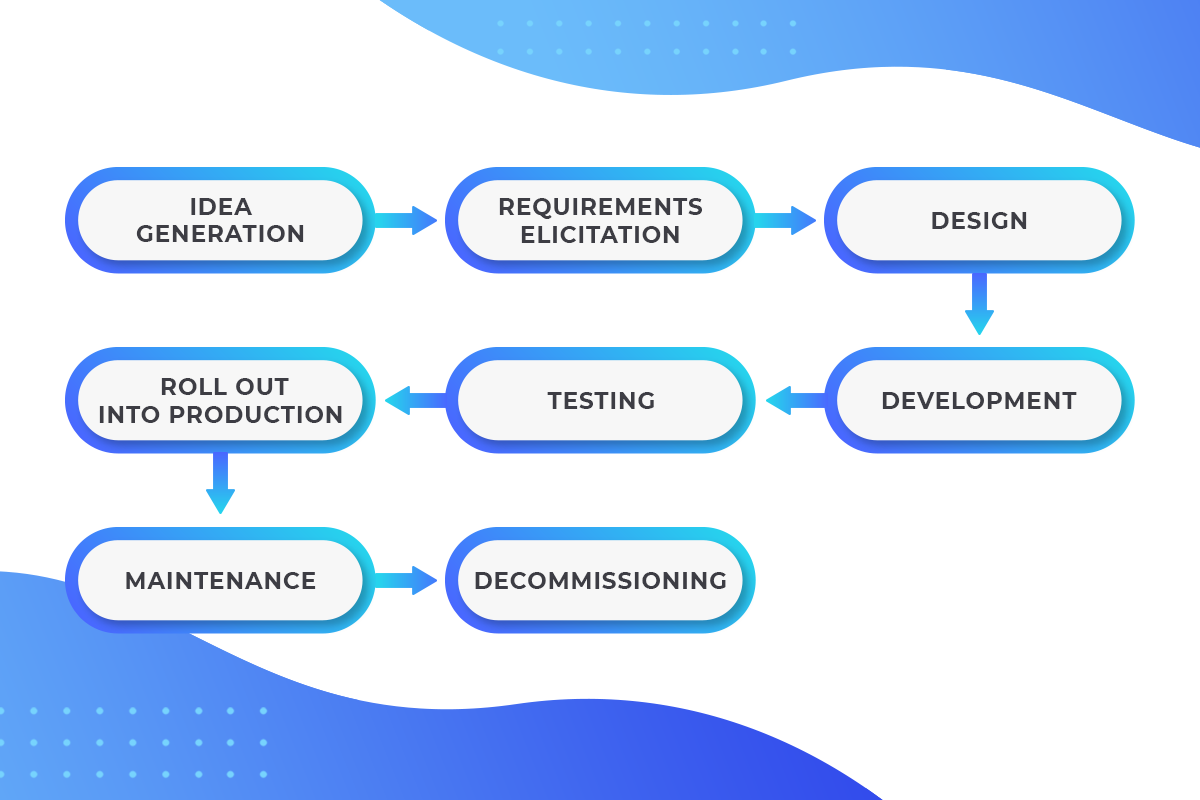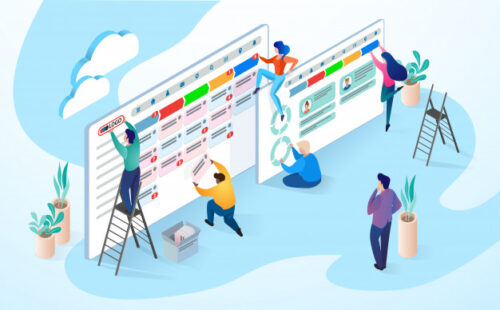Software has become a part of our lives. We can find it everywhere: in services and products, in education and medicine. We use it to carry out our work duties or while traveling on vacation. Almost everything we are accustomed to has an IT component. Sooner or later, every business leader thinks about increasing profits through automation. Then the question arises whether to hire a team of programmers or outsource this work.
In this article, we’ll look at 7 advantages of outsourcing software development, especially if your core business is not IT-related.
1. Recruiting and team retention
The IT sphere is one of the fastest-growing industries today, which is why there is a shortage of qualified personnel. Recruiting experienced specialists can become a headache for any company. Even if you find a good candidate who accepts your job offer, retention can be difficult. Research shows that cash motivation stops working after a certain salary level, and a pleasant corporate culture, additional bonuses, and benefits become more important. For software developers, an especially important factor is the possibility of professional growth, which isn’t easy to assure if IT isn’t a core product for your company.
Outsourcing a project means passing on all these issues to a third-party vendor. Companies providing software development services have a well-established recruiting process, offer competitive conditions to retain employees, and are interested in their professional growth. Moreover, if you need a narrow specialist for part-time or even one-time work, then you’ll more than likely be able to cover this need with the help of outsourcing. To ensure that project knowledge is retained and passed on smoothly, it’s best to adopt a dedicated team model — that is, a team that works only with you on a long-term basis.
2. Minimum project start-up costs
Any project, whether it involves IT or otherwise, has an initial phase. In the early stages, you must establish development and quality assurance processes, set up test environments, and configure continuous integration and delivery processes. A professional IT company already has the necessary expertise and will need to spend only a minimum of time settling all of the above. Therefore, less of your budget will be spent on the initial phase than if you were to initiate a project yourself. In addition, the vendor, thanks to their experience in launching such projects, can offer processes and environments that are optimal in terms of costs and day-to-day work.
3. Full development cycle provision
The life cycle of any software product can be represented as the following chain of activities:

At each stage, you will need specialized professionals such as business analysts, UI/UX designers, programmers, quality engineers, support team, DevOps, etc. In addition, you will need a project manager who knows what needs to be done, who needs to do it, and when, so that work on the product is completed as efficiently as possible at any phase of its life cycle. By outsourcing a project, you can be sure that every stage is managed properly, using state-of-the-art approaches.
4. Team micromanagement
The more employees you have, the more time it will take to manage them. This is especially true now, in the context of the coronavirus pandemic, when most software teams work remotely and are widely distributed. With this approach, team micromanagement becomes more difficult and requires more effort. Micromanagement includes:
- Distributing tasks and tracking their progress;
- Ensuring that the workload is balanced properly, so that one part of the team isn’t standing idle while other team members are overwhelmed;
- Reporting and analysing key performance indicators;
- Conducting performance review meetings to ensure job satisfaction, so that developers are retained;
- And much more.
All these activities demand time that you may not have to spare as you focus on your core business. Outsourcing this work allows you to avoid wasting your valuable time. The team manager will report to you only on essential project matters: overall progress and compliance with the planned timeline and budget.
5. International team and cultural differences
When forming a team, any leader wants to hire the best talent in the field — people with so-called hard skills. However, soft skills — the ability to communicate well and avoid conflict situations — are of no less importance. At the same time, it’s not uncommon to find that the best specialists work in a different country, with a culture significantly different from yours. Multinationality and cultural differences can lead to misunderstandings and conflict. International IT teams are commonplace these days, but by outsourcing management of your software project, you minimize the risk of cultural conflicts. For the most part, you will be communicating with a representative of the company who understands these differences, rather than each of the specialists individually.
6. Broad technical expertise
Software development is neither a quick nor inexpensive process. Finding that architectural problem in a timely way, or getting proper advice on how to apply a particular technical solution, will help you meet your budget and project milestones. So it’s important to pay attention to ensuring a regular exchange of technical knowledge between specialists. It’s always easier to organize an efficient knowledge transfer between teams if you have many professionals in the same field working for a single company. Moreover, mature IT companies conduct systematic project audits to guarantee customers quality both at the functional level and the technical one. All of this becomes almost impossible if you simply hire an internal team. In this case, the specialists are working in isolation and don’t get the opportunity to obtain a third-party assessment of the applied solutions.
7. Vendor independence
When hiring a third-party company, things can go wrong. You may not be satisfied with the quality of the services provided, or the speed of development, or the cost. In this situation, you can always change your vendor by transferring the project to a new one. If you find yourself dissatisfied with the performance of your own team, things are not so simple: firing and hiring employees is still an expensive proposition from a management point of view.
Need advice?
If your main business is not software development, it makes sense to outsource your project. DigitalMara has extensive experience in implementing projects based on the dedicated-team model, by which we form a team chosen specifically to meet your needs, and domain knowledge is constantly retained. In addition, our mature processes and internal audits ensure a high standard of development. Is your goal to capture an audience and seize the market, or maybe to make a successful exit? Write to us! Our experts will advise you on the stages of development for your project and offer the best option for you.



































